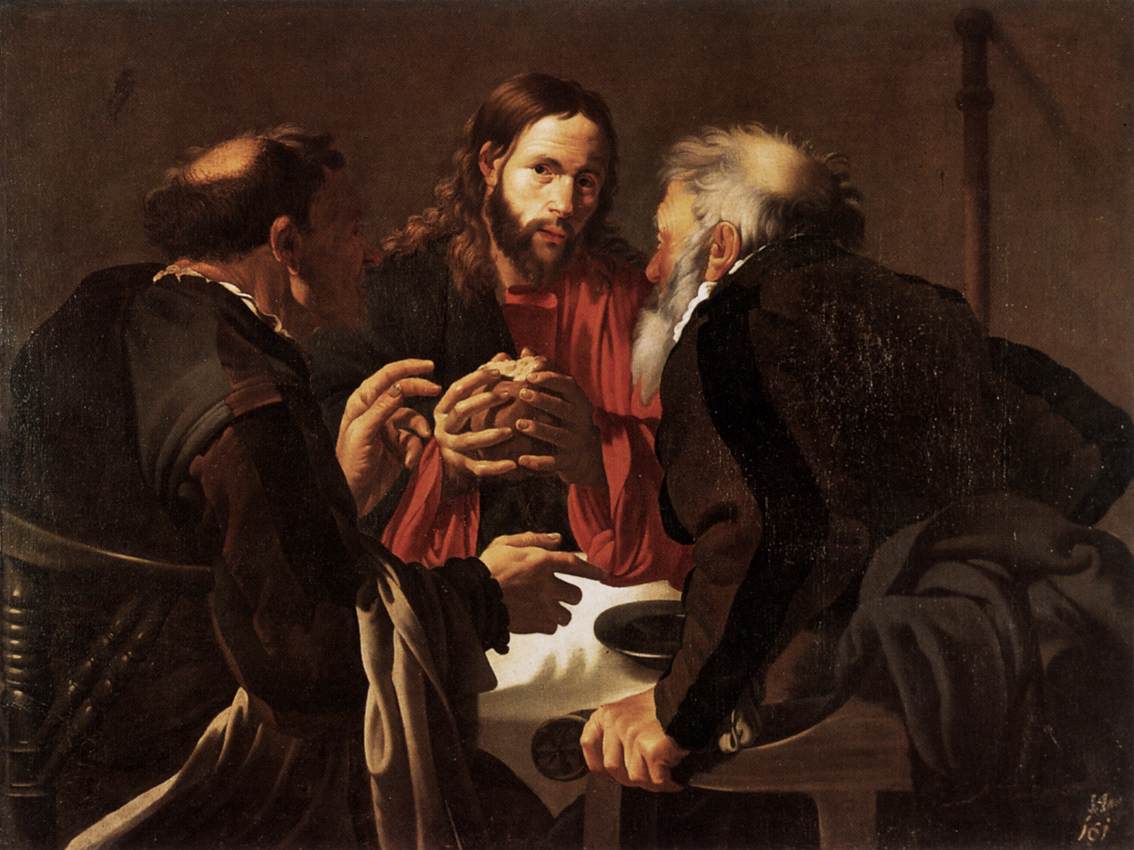Description
"Supper at Emmaus" is a painting by Dutch artist Hendrick Terbrugghen, created in the year 1621. This Baroque masterpiece stands out for its distinctive artistic style, masterful composition, and use of color.
Terbrugghen's artistic style is characterized by his mastery of the chiaroscuro technique, which involves strongly contrasting light and shadow to create dramatic effects. In "Supper at Emmaus", this technique is used brilliantly to bring out the details and expressions of the characters. The faces of the disciples and of Jesus are brightly lit, while the background and secondary elements are plunged into darkness, creating an effect of depth and mystery.
The composition of the painting is another interesting aspect. Terbrugghen uses a triangular composition, with Jesus in the center and the two disciples on either side. This arrangement creates a visual balance and emphasizes the importance of the central figure. In addition, the artist uses diagonal lines to guide the viewer's gaze towards Jesus, creating an effect of movement and dynamism.
When it comes to color, Terbrugghen uses a limited but effective palette. Dark and earthy tones predominate in the painting, reinforcing the atmosphere of mystery and solemnity. However, the artist also uses touches of more vivid colours, such as the deep red of the tablecloth and the golden yellow of Jesus' dress, to highlight certain elements and create contrast.
The story behind the painting is also fascinating. "Supper at Emmaus" depicts the moment when Jesus appears to two of his disciples after his resurrection. This biblical episode is narrated in the Gospel of Luke and symbolizes the revelation of the true identity of Jesus through the Eucharist. Terbrugghen masterfully captures the surprise and amazement of the disciples when they recognize Jesus at the moment he breaks the bread.
Despite its artistic quality and historical importance, "Supper at Emmaus" is a relatively little-known work compared to other Baroque paintings. However, his impact and his influence on the painting of the time are undeniable. Terbrugghen's ability to capture emotion and convey meaning beyond the visual surface is evident in this work, making it an exceptional and admirable piece of art.

